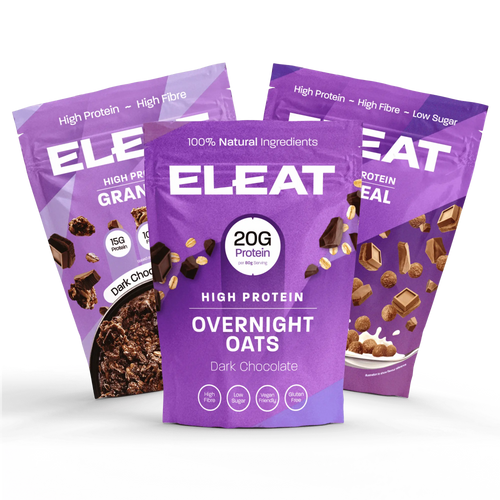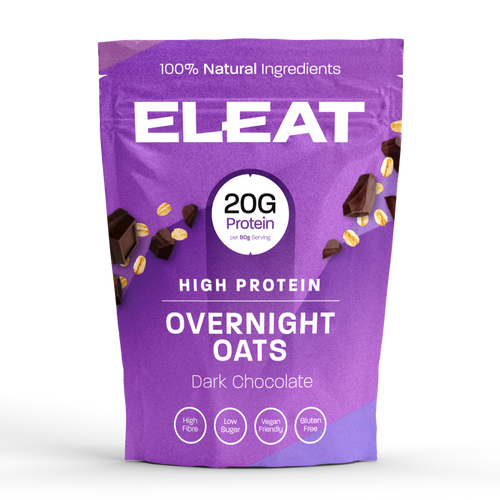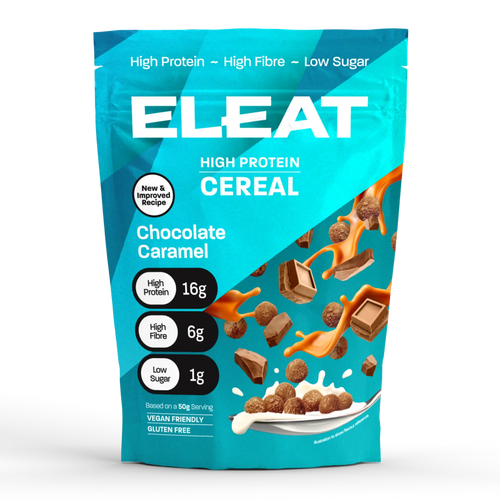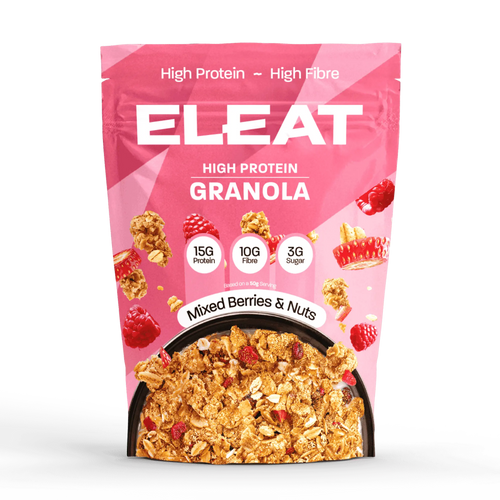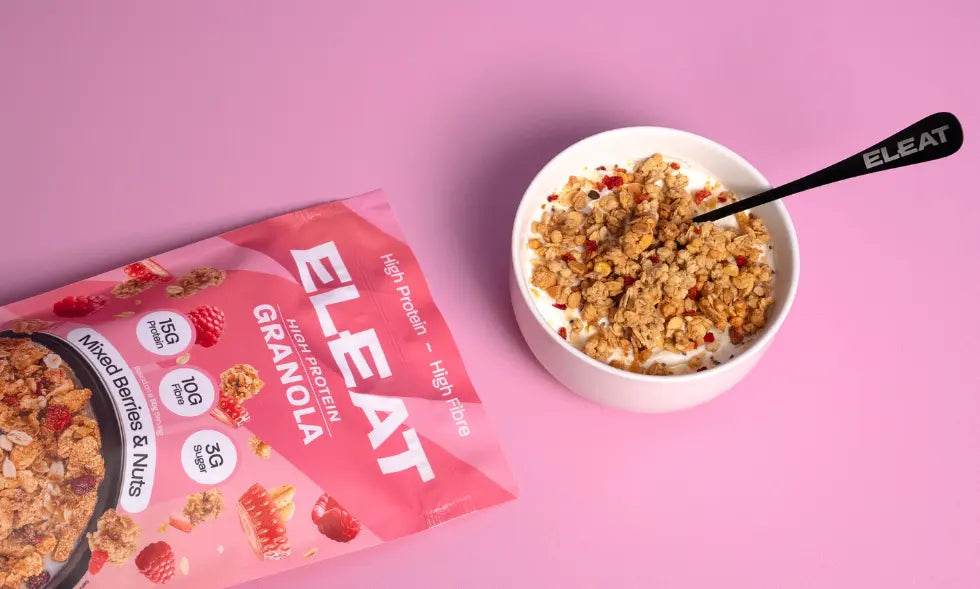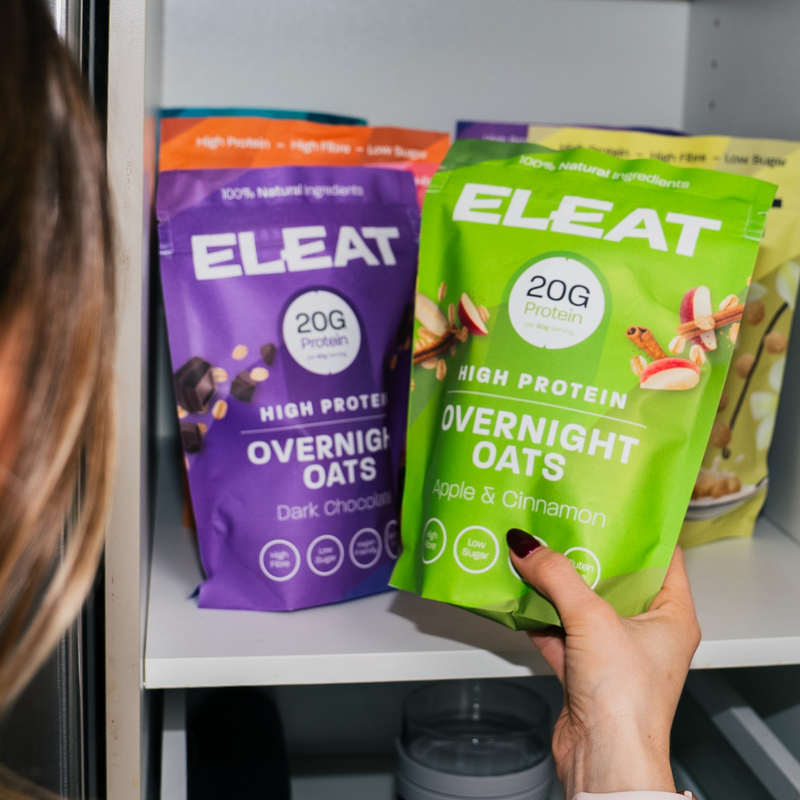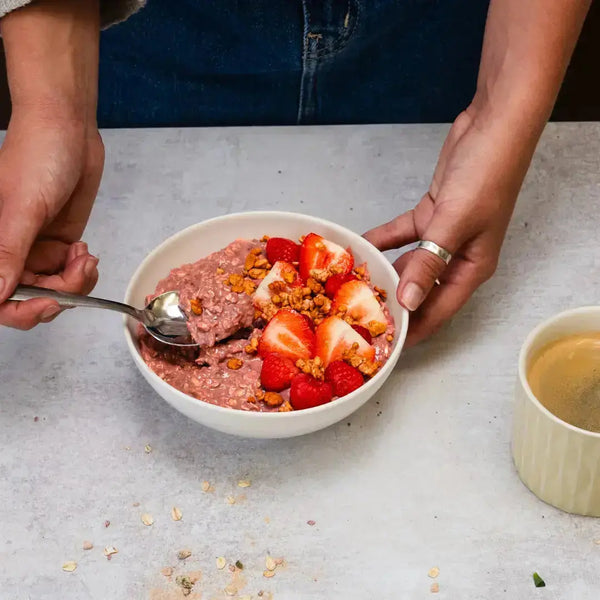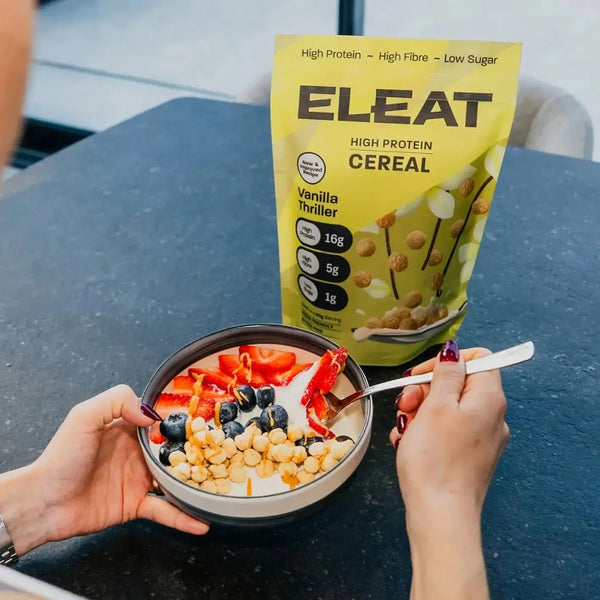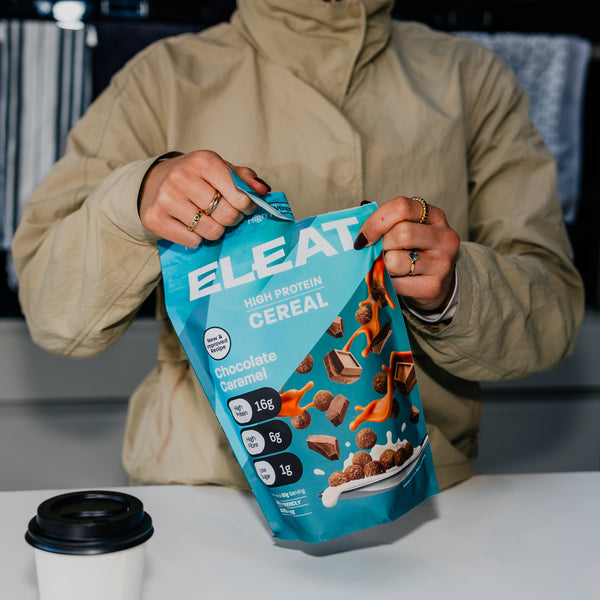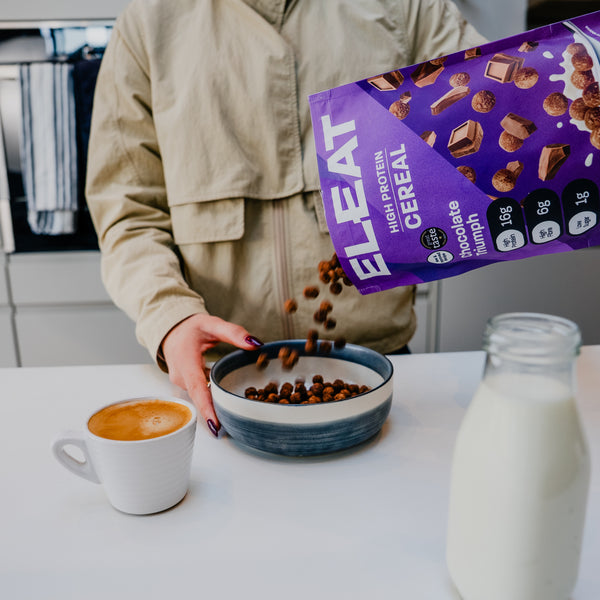In this article:
Granola is often hailed as a healthy breakfast staple, packed with wholesome ingredients like oats, nuts, and seeds. But when it comes to weight loss, does it actually help - or could it be holding you back?
At its core, granola is a mix of fibre-rich whole grains, protein-packed nuts, and nutrient-dense seeds, often bound together with natural or added sweeteners like honey or maple syrup. While these ingredients can offer sustained energy and essential nutrients, many store-bought granolas also contain added sugars and oils that can increase calorie content.
We’ll break down the pros and cons of granola for weight loss, helping you decide whether it deserves a place in your diet and how to make the healthiest choices.
Nutritional Breakdown of Granola
Granola is made up of a mix of nutrient-dense ingredients, each contributing to its overall health benefits and calorie content. Let’s break down the key components:
Common Ingredients and Their Nutritional Impact
Oats – A great source of fibre, particularly beta-glucan, which helps with digestion and keeps you full.
Nuts & Seeds – Almonds, walnuts, chia seeds, and flaxseeds provide protein, healthy fats, and essential vitamins.
Sweeteners – Honey, maple syrup, or added sugars enhance flavour but can increase the calorie content.
Dried Fruits – Raisins, cranberries, or dates add natural sweetness but also contribute extra sugar.
Oils – Coconut oil or vegetable oil is often used to bind the ingredients, adding more fat and calories.
Typical Calorie Content Per Serving
A standard serving of granola can contain anywhere from 150 to 300 calories, depending on ingredients and added sugars. Some store-bought varieties can exceed 400 calories per cup, making portion control essential for weight management.
Benefits of Granola for Weight Loss
When chosen wisely and eaten in moderation, granola can be a valuable addition to a weight-loss diet. Here’s how it can support your goals:
High in Fibre - Helps with Satiety and Digestion
Granola, especially varieties made with whole oats, nuts, and seeds, is rich in fibre. Fibre slows digestion, keeping you fuller for longer and reducing the likelihood of overeating. It also supports gut health by promoting regular digestion and stabilising blood sugar levels, preventing energy crashes that can lead to cravings.
Contains Protein & Healthy Fats - Supports Metabolism and Reduces Cravings
The nuts and seeds in granola provide a natural source of protein and healthy fats, which are essential for maintaining muscle mass and boosting metabolism. Protein helps regulate hunger hormones, reducing cravings, while healthy fats provide sustained energy and keep you feeling satisfied between meals.
Can Be a Nutrient-Dense Option - If Consumed in the Right Portion
Granola can be a powerhouse of essential nutrients like vitamins, minerals, and antioxidants - especially when made with whole, minimally processed ingredients. Choosing a variety with low sugar, high fibre, and natural sources of protein can make it a smart addition to a weight-loss plan. However, portion control is key, as even healthy granola can be calorie-dense.
By selecting the right granola and enjoying it in moderation, you can take advantage of its benefits without compromising your weight-loss goals.
The Potential Downsides of Granola for Weight Loss
While granola has many health benefits, there are some potential downsides to consider - especially if weight loss is your goal.
High in Calories - Many Store-Bought Granolas Have Added Sugars and Oils
Granola is naturally calorie-dense due to its combination of oats, nuts, and seeds. However, many store-bought varieties also contain added sugars, syrups, and oils that significantly increase the calorie count. Some brands pack as much as 400–500 calories per cup, making it easy to exceed your daily intake without realising it.
Portion Control Issues - Easy to Overeat Due to Its Density
Because granola is crunchy, flavorful, and often mixed with sweet ingredients like dried fruit or chocolate, it’s easy to eat more than the recommended serving. Unlike lighter breakfast options, a small portion of granola is calorie-heavy, so measuring out servings is crucial to avoid unintentional overeating.
Sugar Content - Some Brands Contain as Much Sugar as a Dessert
Many commercial granolas contain high amounts of added sugars, sometimes rivalling the sugar content of cookies or candy bars. Even granola labelled as "healthy" or "natural" can have hidden sweeteners like cane sugar, honey, or agave syrup. Excess sugar can lead to blood sugar spikes and crashes, increased hunger, and weight gain over time.
How to Choose Weight-Loss-Friendly Granola
Not all granolas are created equal - many are packed with hidden sugars and unhealthy fats. If you're trying to lose weight, it's important to choose a granola that supports your goals without unnecessary calories. Here’s what to look for:
Look for Low-Sugar, High-Fibre Options
One of the biggest pitfalls of store-bought granola is excessive sugar. Aim for granolas with less than 5g of sugar per serving and a good amount of fibre (at least 3g per serving) to help keep you full longer.
👉 ELEAT granola is a great choice - it's high in protein, low in sugar, and packed with fibre, making it an ideal option for weight-conscious eaters.
Prioritise Whole Ingredients Like Oats, Nuts, and Seeds
The best granolas are made with simple, whole-food ingredients. Oats provide slow-digesting carbs, nuts add protein and healthy fats, and seeds offer essential vitamins and minerals. Avoid granola with fillers, artificial flavours, or preservatives.
Stick to a Proper Serving Size
Even the healthiest granola can derail weight loss if you overeat it. A standard serving is about 30-60g - stick to this portion by measuring it out instead of eating straight from the bag.
Final Tip: Pair granola with high-protein foods like Greek yoghurt or a smoothie bowl for a balanced meal that keeps you full without excess calories!
Conclusion: Is Granola Good For Weight Loss?
Granola can be both a friend and a foe when it comes to weight loss. While it offers valuable nutrients like fibre, protein, and healthy fats, it can also be calorie-dense and high in sugar if not chosen carefully. The key to enjoying granola without sabotaging your weight-loss goals is moderation, ingredient awareness, and portion control.
Opt for low-sugar, high-fibre granolas made with whole, natural ingredients—like ELEAT granola, which provides the right balance of nutrition without unnecessary additives. By being mindful of what’s in your granola and how much you’re eating, you can make it a healthy and satisfying addition to your diet.
